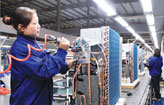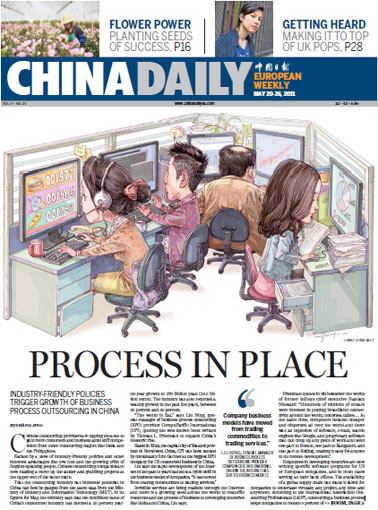Politics
New rules regulate recalls of unfit food
Updated: 2011-05-25 07:51
By Qiu Bo (China Daily)
BEIJING - Revised national regulations that set out when and how tainted food should be recalled from the shelves are another example of the way in which China is trying to ensure food is safe to eat, says the nation's top quality watchdog.
The General Administration of Quality Supervision, Inspection and Quarantine posted details about the new rules on its website at the weekend to solicit public opinions.
The draft, which updates regulations introduced in 2007, makes it clear that food producers are not allowed to reuse food that has been recalled to create other food products after decontamination.
However, the new rules say that food that has been recalled because of defective labels or instructions can be put back on the shelves once the problem has been fixed - but only after customers have been informed.
The draft regulation urges food companies to report the progress of food recalls to local quality supervision authorities within three days of unsafe food products being identified and recalled. They should also inform manufacturers, sellers and consumers upon discovering unsafe products, it said.
The revision calls for the administration's local bureaus to document food recalls and establish files on the companies involved.
Businesses responsible for the production of unsafe food may face fines of up to 30,000 yuan ($4,600) for failing to respond in a timely and appropriate way, the revision says.
Huang Haitao, a 43-year-old resident of Guiyang, Guizhou province, said he would like to see the government take concrete steps to remedy the grave food safety situation, instead of creating more paperwork.
"The revision improves things a lot in comparison to the old regulations but I would rather see the rules we have being effectively implemented," added Sang Liwei, a food-safety lawyer and the China representative of the Global Food Safety Forum.
Sang said the maximum penalty of 30,000 yuan is too little to dissuade companies from producing unsafe food.
"The fine should be calculated based on the companies' revenues," he said.
E-paper

Thawing out
After a deep freeze in sales during the recession, China’s air conditioner makers are bouncing back
Cool Iron lady
Of good and evil
Build on security initiatives
Specials

Memory lanes
Shanghai’s historic ALLEYS not just unique architecture but a way of life

Great expectations
Hong Kong-born singer songwriter rises to the top of the UK pops.

A diplomat of character
Belgian envoy draws on personal fascination to help build China ties.
